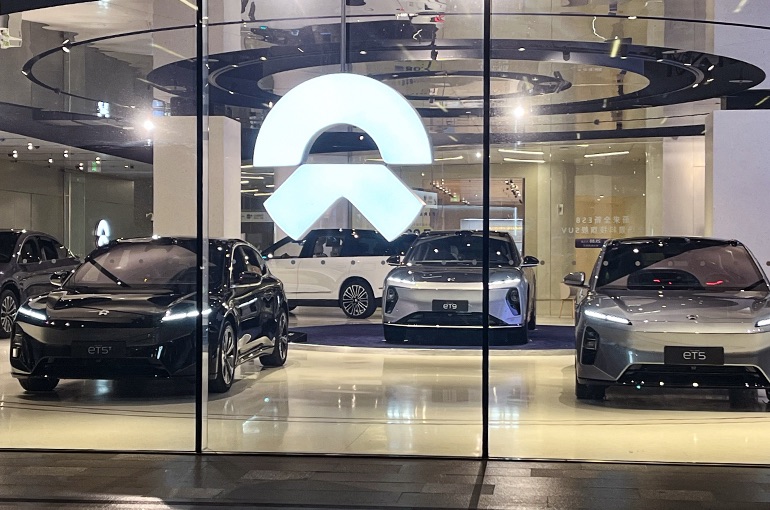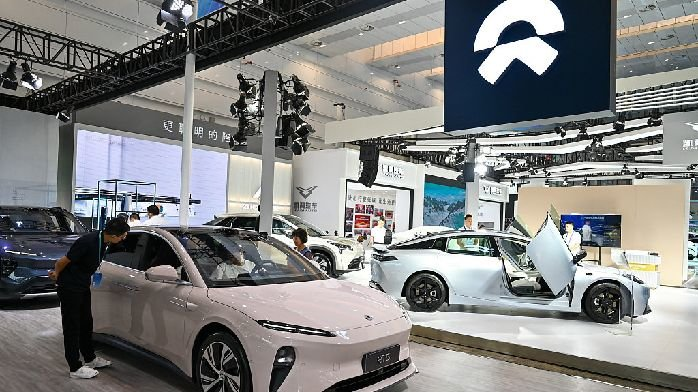Nio responds to GIC lawsuit: “baseless allegations” already investigated
Electric vehicle manufacturer Nio has addressed recent market concerns surrounding a lawsuit filed by Singapore’s sovereign wealth fund, GIC. The company stated that the case is not new and does not reflect its recent operational performance, stemming instead from “baseless allegations” made in a short-seller report by Grizzly Research in June 2022.
Nio clarified in a statement to Chinese media outlet Yicai on the evening of October 16th that an independent internal investigation, assisted by a third-party international law firm and forensic accounting firm, was completed by the company’s independent board committee in August 2022. This investigation found no factual basis for the allegations.
The news initially impacted Nio’s stock performance. On October 16th, Nio (9866.HK) shares on the Hong Kong Stock Exchange saw a sharp decline of over 13% at market open, narrowing to an 8.99% drop by closing.
Public records indicate that GIC accumulated approximately 54.45 million Nio ADSs between August 2020 and July 2022. During this period, Nio’s share price fluctuated between 13 and 21 USD, at one point reaching a historical high of 66.99 USD.
Origin of the dispute: Grizzly Research’s short-seller report
The controversy traces back to a short-seller report published by Grizzly Research on June 29, 2022. Nio promptly responded, stating the report “lacked merit and contained numerous errors, unsubstantiated speculations, and misleading conclusions and interpretations.”
Weeks later, on August 26, 2022, Nio announced the completion of its independent internal review of the short-seller report. Conducted by an independent committee with the assistance of professional advisors, including an international law firm and a renowned forensic accounting firm (not Nio’s auditor), the review found no improprieties, and all allegations were deemed unfounded.
In September 2022, the U.S. Securities and Exchange Commission (SEC) also inquired about the short-seller report, requesting explanations regarding the accounting treatment of transactions related to Nio’s battery asset management business (BaaS). Following Nio’s response, the SEC took no further action.
Several financial institutions, including Deutsche Bank, Morgan Stanley, J.P. Morgan, and Daiwa Capital, subsequently published reports refuting Grizzly Research’s conclusions. They specifically highlighted that Grizzly’s concerns about Nio’s BaaS model were based on a misunderstanding of the model and a confusion of related concepts and data. A Deutsche Bank research report stated, “Grizzly’s concerns about Nio’s battery asset management business are unfounded, and elements of the business model are severely misunderstood.”
Furthermore, between August and September 2022, two plaintiffs filed lawsuits against Nio, its CEO, and CFO in the U.S. District Court for the Southern District of New York. While Nio completed its motion to dismiss these lawsuits on July 31, 2023, the court’s decision on the motion remained pending as of Nio’s 2024 annual report disclosure date.
GIC’s independently initiated lawsuit has been stayed by the court until early October 2025, due to the ongoing nature of the aforementioned class-action lawsuits.
According to Yicai, despite Nio’s prior internal review addressing the short-seller allegations, the impact of the Grizzly report clearly lingers. GIC’s lawsuit presents a renewed challenge to Nio’s innovative BaaS model.
Media reports indicate that GIC alleges Nio inflated revenue and profits through Wuhan Weineng Battery Asset Co., a joint venture with its partners, misleading investors and causing GIC investment losses.
However, a source close to Nio quoted by Yicai suggested that the company’s accounting treatments and disclosures, as a triple-listed entity, have been reviewed by regulators in all three jurisdictions. Particularly during its Hong Kong listing process, BaaS disclosures were comprehensive, implying extensive review and approval by the Hong Kong Securities and Futures Commission and the Hong Kong Stock Exchange.
The source also noted that GIC, as a sovereign wealth fund managing over 100 billion USD, has a history of suing listed companies for investment losses. Some market observers believe GIC’s legal actions often serve a dual purpose: financial claims and a component of its risk management strategy, using legal means to hedge potential investment losses during market volatility.
Professor Hu Mingxia of the National Accounting Institute in Beijing, in a July 2022 analysis, stated that short-seller firms like Grizzly often target rapidly growing companies, using seemingly professional data to mislead inexperienced or financially unknowledgeable investors, and profit from single-day stock price fluctuations on the day of their reports.
Nevertheless, unlike the previous response to Grizzly Research, this lawsuit is initiated by a sovereign wealth fund, indicating Nio faces a more formidable opponent. The ultimate conclusion of this lawsuit will depend on the progress of U.S. court proceedings, which will take time.
Following over 100 billion yuan (14 billion USD) in losses, achieving profitability in Q4 has become a critical “match point” for Nio. This “black swan” lawsuit adds another layer of uncertainty to Nio’s already unclear future prospects, as reported by Yicai.




